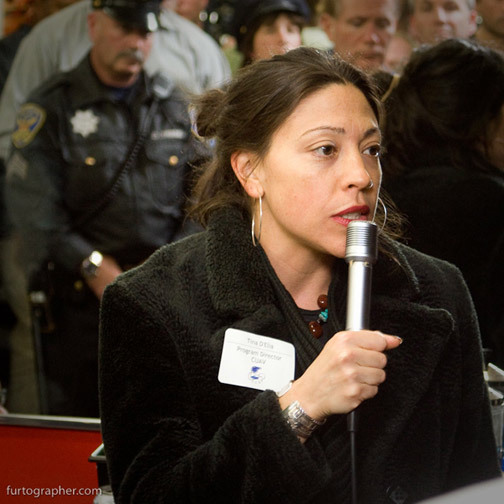An Advocate for Victims and Survivors of Violence Reflects on the Process of Recovery
By Tina D’Elia
When Gwen Araujo was tragically killed in an anti-transgender hate crime murder, I was working as the director of Hate Violence Survivor Program with Community United Against Violence (CUAV). Immediately following the devastating loss, in this role I connected with community groups like Community United Against Violence (CUAV). Immediately following the devastating loss, in this role I connected with community groups like Community United Against Violence (CUAV). Immediately following the devastating loss, in this role I connected with community groups like Parents, Families & Friends of Lesbians and Gays of Fremont, provided media advocacy, attended community rallies and marches, made contacts with the criminal legal system, and coordinated a constant courtroom presence of supporters for three murder trials.

Since its founding in 1979, CUAV has been working to build the power of LGBTQQ (lesbian, gay, bisexual, transgender, queer, and questioning) communities to transform violence and oppression. We support the healing and leadership of those impacted by abuse and mobilize our broader communities to replace cycles of trauma with cycles of safety and liberation.
I remember the first time I met the courageous Sylvia Guerrero, Gwen Araujo’s mother, at the courthouse in Fremont. Even from this first meeting, I could feel the depth of this family’s unconditional love for each other, friends and even strangers like me, as they opened their arms and welcomed me to be part of their extended family. Working with the family, they also taught me about healing, spirituality, resilience, and honoring Gwen so she will never be forgotten. In spite of how difficult it was to witness the family grieve the loss of Gwen and come to terms with the horrifying pain that she experienced, Gwen’s spirit always seemed present and felt fearless, beautiful, and bold.
Every time I heard Sylvia speak, and when I would see her surrounded by family and friends, I was reminded that no one should ever mourn and go through a gut-wrenching process like this alone. What all of us can offer hate violence survivors and surviving family and friends is to be present, honest, and open to listening, and always help honor the memory of those lost to violence. Many grieving survivors and victims experience distrust toward others and it is important to do what each of us says we are going to do. It is okay to ask how someone is doing, and it is often very comforting for survivors to have the physical presence of someone else with them, whether it’s for a doctor’s appointment or a court proceeding, sharing a meal together or being available in the middle of the night to talk.
In supporting hate crime victims and their families, it’s important to understand that the road to recovery and healing from hate violence is not a linear process. I’ve watched how celebrating and honoring the memory of their loved one, and becoming part of the larger community through speaking out against anti-LGBT hate violence, can be very healing for surviving families.
Many of those who have lost transgender family members or friends participate in the annual Transgender Day of Remembrance, attend marches for transgender pride and other annual Pride Events, or volunteer as a speaker, donor or advocate of LGBT organizations. These are opportunities for people to feel connected to their son or daughter’s life and identity, but also feel connected to a broader community of supporters.
Over time, family and friends may describe feeling less depressed. They may not live in the same shock and trauma that they first experienced after a loss, and may be more accepting of the pain from their loss. It may not always be at the forefront of their minds, or if it is, many find a way to cope with the loss, while still living one’s life.
Tina D’Elia was the Hate Violence Survivor Program Director for CUAV from 1999 to June 2009.
 Since its founding in 1979, CUAV has been working to build the power of LGBTQQ (lesbian, gay, bisexual, transgender, queer, and questioning) communities to transform violence and oppression. We support the healing and leadership of those impacted by abuse and mobilize our broader communities to replace cycles of trauma with cycles of safety and liberation.
Since its founding in 1979, CUAV has been working to build the power of LGBTQQ (lesbian, gay, bisexual, transgender, queer, and questioning) communities to transform violence and oppression. We support the healing and leadership of those impacted by abuse and mobilize our broader communities to replace cycles of trauma with cycles of safety and liberation.